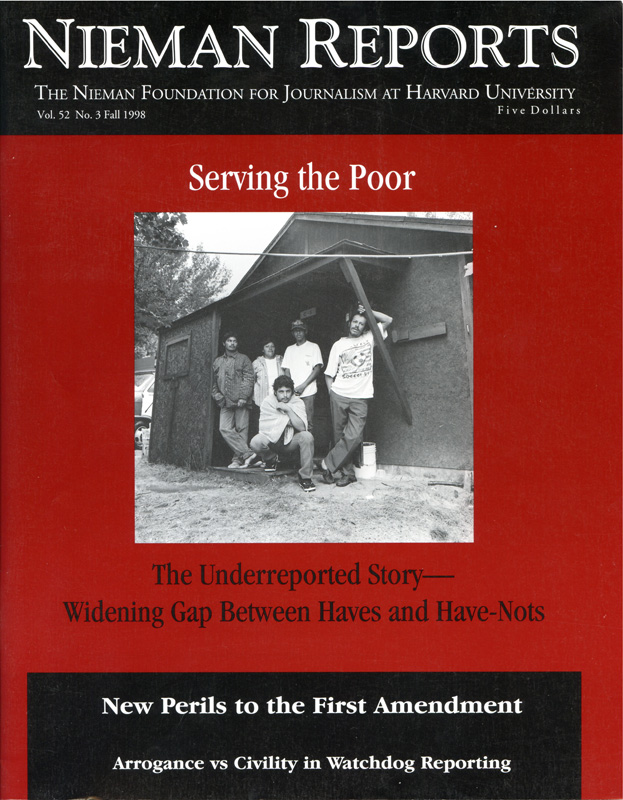ISSUE
Fall 1998

Serving the Poor
“I think a strong argument can be made that the residents of [poorer] areas are severely disadvantaged—as citizens, as workers, as consumers—by the lack of serious coverage from television and the lack of local coverage of their neighborhoods by newspapers,” said Maxwell King former Editor of The Philadelphia Inquirer. The reason, of course, is that the media, regardless of their claims of serving all the people, aim for the affluent, the audience that advertisers seek. It would seem, then, that if newspapers want to expand readership they would be worried about the growing gap between the rich and the poor.
Articles
Masthead
Publisher
Bill Kovach
Editor
Robert H. Phelps
Assistant Editor
Lois Fiore
Editorial Assistant
Molly Marsh
Technology Editor
Lewis Clapp
Design Editor
Deborah Smiley
Business Manager
Susan Goldstein
Cover Story
© Frank Van Riper from “Down East Maine/A World Apart.”